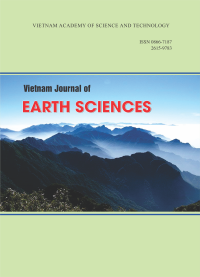ĐÁNH GIÁ RỦI RO ĐỘNG ĐẤT CHO CÁC THÀNH PHỐ LỚN Ở VIỆT NAM
Author affiliations
DOI:
https://doi.org/10.15625/0866-7187/33/3/341Abstract
Seismic Risk Assessment for Mega-cities in Vietnam
Earthquake threats usually appear in high seismicity areas and become particularly dangerous if those areas at the same time are urban ones. Planning and investment for strategies on mitigation of losses and damages due to earthquake and tsunami now become an urgent issue for many countries in the World. Moreover, these strategies have to be made and implemented while earthquake or tsunami did not happen in order to avoid much more expenses for the during disaster rescue activities, or for the after disaster restore and recovery activities.
Starting from the year 2000, many researches on urban seismic risk assessment have been implemented in Vietnam. The typical seismic risk assessment problem essentially lies in the modeling of earthquake sources and development of realistic earthquake scenarios, which serves as a basis for the estimation of earthquake - related damages and losses in urban areas. A methodology suitable for Vietnam was developed and applied for several megacities of Vietnam. The application of GIS technology allows developing a powerful tool for implementation of quantitatively risk evaluation procedure for an urban area and display results in terms of maps showing building damage and casualties at different levels and at different times of a day.
This paper presents some preliminary results of using GIS to assess seismic risk and to estimate losses for urban areas of three biggest cities in Vietnam, namely Hanoi, Ho Chi Minh City and Nha Trang. Although the methodology has been applied to a
limited framework, the obtained results show a realistic picture of damage and loss that may result from future earthquakes at
urban scale. The estimates of damage and human impacts due to earthquakes can help the decision-makers at local, regional
and national levels in:
1. Mitigating the possible consequences of earthquakes;
2. Anticipating the possible nature and scope of the emergency response needed to cope with an earthquake/tsunamirelated
disaster, and
3. Developing plans for recovery and reconstruction following such a disaster.






